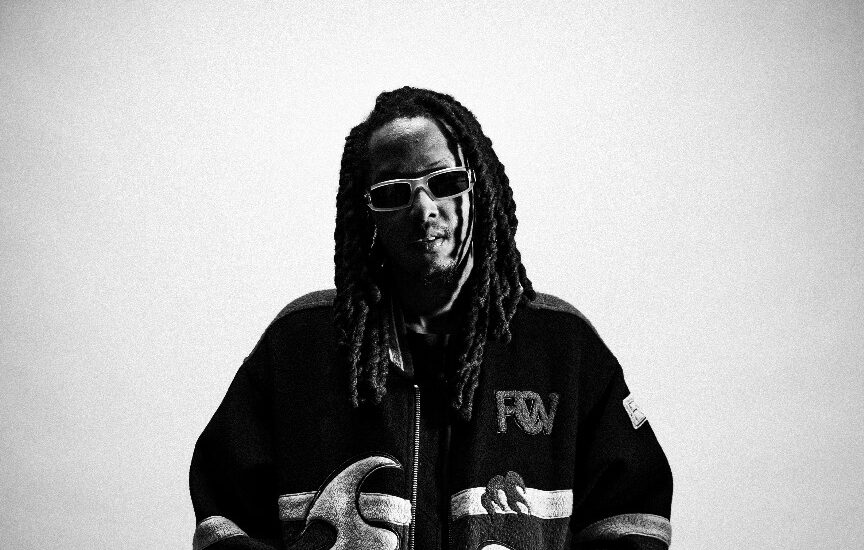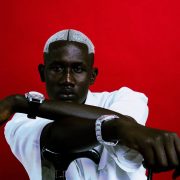“Within this chaos that is Kenyan music, something beautiful is blooming, and I can’t wait for the time when East Africa is at the forefront of the international music conversation”.— Afamefuna Onyebadi
By Frank Njugi
American musician and record producer Timothy Zachery Mosley, popularly known as Timbaland, captures the essence of a music producer’s role with his famous quote: “Music producers are the architects of a song, the unsung poets of the music world”. He highlights the crucial yet often unseen role of producers in shaping and bringing songs to life.
One such ‘unsung poet’ in the East African music industry is New York-based Kenyan-Nigerian producer, Afamefuna Onyebadi, who is rapidly rising to prominence. Gaining recognition for his talent and impact, he collaborates with a diverse range of artistes, shaping the sound of contemporary East African music. The Brooklyn-based producer has recently worked with an eclectic roster of East African artistes, which include Lil Maina, Boutross, Benzema, Buruklyn Boyz, Kuky, Iyanah & Maali.
On 21 March 2025, Afamefuna Onyebadi is set to release i.r.l, his debut EP. The Dance/R&B project features exceptionally talented East African female artistes, including Terrianne Iraki, Zowie Kengocha, Zaituni Wambui, and Stacy Kamatu. The project blends Dance and R&B, incorporating four-on-the-floor beats, pads, psychedelic synths, strings, and catchy bass melodies.
In an exclusive interview with Afrocritik, Afamefuna Onyebadi discusses his music production, the i.r.l EP, and the art of music.
What is Afamefuna Onyebadi’s backstory and History?
My early musical influences came from my family—particularly an older cousin. He introduced me to a lot of rock music. Also, because we both spent so much time playing PlayStation, we became obsessed with the playlists, which, in the early 2000s, were mostly filled with rock music. That’s where my love for music began.

In the 2010s, I was heavily influenced by the drill music coming out of Chicago from artistes like Lil Bibby, G Herbo, Lil Durk, L’A Capone, and Chief Keef. I used to watch all the War in Chiraq documentaries and was deeply inspired by Chief Keef’s producer, Young Chop.
I wanted to be like him and create Trap/Drill beats in his style. So, in 2013, I downloaded FL Studio, watched every YouTube tutorial I could find—especially from BusyWorksBeats—and here we are.
Your debut E.P, i.r.l, drops on the 21st of March. What can you tell us about the EP? and what inspired the project, and some of the key sonic choices you made while creating it?
The EP is a coming-of-age project for me. I’ve always wanted to put together a proper body of work but had never actually done it successfully before. I realised it was now or never. So, I blocked off an entire month last year and focused solely on making Dance/R&B beats every day, gradually compiling a pack of beats, which I then sent to a range of artistes.
The project is titled i.r.l because I am naturally an introvert. I realised I desperately needed to live life more, spend less time on the internet, go outside more, and try my best not to be stuck in my head too much. i.r.l—short for ‘In Real Life’—represents my attempt to break out of my shell and experience life as it was meant to be lived.
I’ve always been inspired by KAYTRANADA, Dance music, and R&B, so I decided to put my own spin on this sound.
The debut EP features arguably some of the best vocalists in the industry. What inspired your decision to collaborate with them, and how do their voices complement the sound and vision of the project?
I’ve been a fan of every artiste on this project at different points in my life. I’ve always loved Terrianne’s sound, all the way back to the SoundCloud era in 2016 when she was making music with Twin$OULS and Quassa.
I discovered Zowie Kengocha in 2022 through Iyanah, Andyah, and Josh Ngethe, and I was in awe when she first came to the studio. I met Zaituni Wambui at a studio in Karen about two years ago. At the time, she was participating in the Tusker Nexters programme, and my friend Shaddie—who also worked there—insisted that she was up next.
I got to know Stacy Kamatu more recently through a close friend I run a podcast with. He introduced me to her amazing song Buy Me Love, which I still listen to today.
Each artiste brought their all to this project, imparting a refreshing, dynamic sound. I love the themes of love, relationships, and independence that run through the EP, and I especially appreciate the distinct Kenyan-ness with which each artiste chose to express themselves.

You are a producer with experience working with both well-known mainstream artistes and indie musicians, from Lil Maina to the likes of Zowie Kengocha and Stacy Kamatu. What has been the most striking difference in the creative process? How does producing for a mainstream act compare to working with an independent or Alté artiste?
The process of working with artistes is always unique, whether they are mainstream or independent. I think the main difference primarily lies in how the music is released. I’ve come to realise that mainstream artistes are not necessarily more talented than indie artistes.
What sets them apart is the presence of dedicated teams who handle key aspects such as marketing, distribution, playlisting, and branding. These resources elevate their releases beyond what indie artistes can typically achieve with limited budgets.
As a producer now stepping into the role of an artiste, what is it like having full artistic and creative control over your own music? Do you find it more freeing, or does it come with its own set of challenges?
It definitely comes with its own set of challenges. Whereas in the past I primarily worked behind the scenes as a producer, this is an entirely different beast. Never in my life have I had to expose myself to the world in this way.
I have a newfound respect for artistes because having people perceive you and your art is incredibly difficult and can be nerve-wracking. This is definitely an adjustment for me, but it’s one I embrace.
As a New York City–based producer, away from home, how does the distance shape your creative process? And how do you balance the influences of your new environment while staying true to the authentic sounds of your roots, which is Kenya, Nigeria and Africa as a whole?
The distance was definitely a huge hurdle in creating this project. One person who helped me immensely was Hendrick Sam. He recorded three-quarters of the artistes on this project and remotely set up studio sessions, which I joined using my laptop. This allowed me to be part of the recording process and give feedback in real time.
One great thing about being based in New York is the community I’ve built. Through networking, I’ve met some of the most talented creatives I’ve ever worked with—from my friend, NAM, who styled me for my photoshoot, to Henry, my photographer, and Cathie, who helped produce the song Better.
One thing that has helped me stay deeply connected to my roots as a Kenyan producer is the podcast I started with Sam, The 30 Percent Podcast. Our podcast focuses on the Kenyan music industry, and we deliberately decided to play only Kenyan music on our platform. This means that every week, I listen to all the new releases coming out of Kenya, which helps me stay in tune with what’s happening.

Nairobi has long been an international hub for many music scenes. What are your thoughts on the state of the existing music scenery in this city and the country, Kenya, as a whole?
I love the music scene in Kenya because it is incredibly diverse. It’s insane how many niches and sub-niches exist within the industry—Shrap, Drill, Trap, Afro Pop, Benga, R&B, Arbantone/Gengetone, Gospel, and Oontz are just a few of the thriving genres, each driven by exceptionally talented artistes.
Within this chaos that is Kenyan music, something truly beautiful is taking shape, and I can’t wait for the day East Africa stands at the forefront of the global music conversation.
Who are your Major influences? Which artistes inspire you the most?
My major influences producer-wise would be: Wondagurl, KAYTRANADA, Nick Mira, Pierre Bourne, Metro Boomin, Beat Ya Clemo, Louie Lastic, Jack Dine, Monte Booker & LONDON. Artiste wise at the moment I’d say: Paramore, Alex Isley, Project Pat, Pink Pantheress, Destin Conrad, Rema, Fancy Fingers.
What more can we expect from Afamefuna Onyebadi in the near future, in addition to your debut E.P?
The unexpected. My next project will be entirely different to this one. I don’t want to remain static within one sound. I love that I leaned heavily into the Dance R&B sound for this project, but I have some ideas for what’s next and it’ll look, feel and sound nothing like “ i.r.l”.
Frank Njugi is a Kenyan Writer, Culture journalist and Critic who has written on the East African and African culture scene for platforms such as Debunk Media, Republic Journal, Sinema Focus, Culture Africa, Drummr Africa, The Elephant, Wakilisha Africa, The Moveee, Africa in Dialogue, Afrocritik and others. He tweets as @franknjugi.



